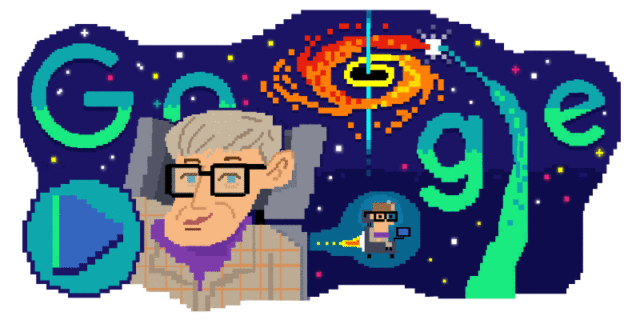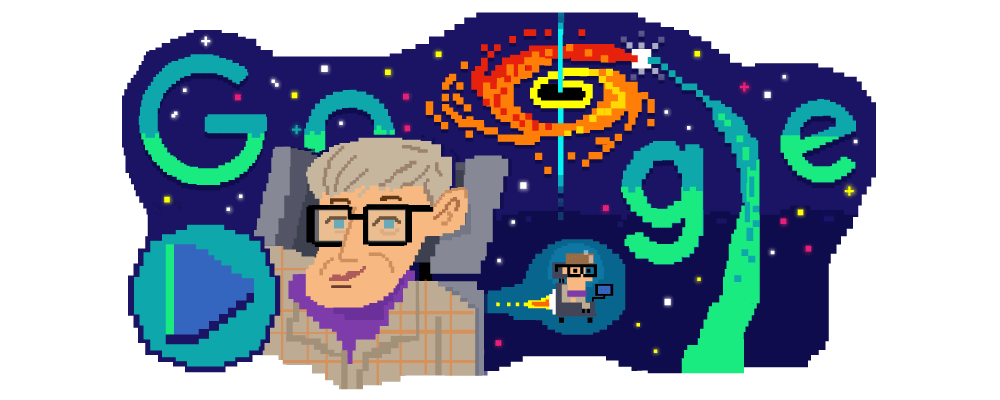
Google celebrates Stephen Hawking’s 80th birthday with a Doodle video on its homepage for Brazil and many other countries.
The search engine posted: “Today’s video doodle celebrates one of the most influential scientific minds in history, English cosmologist, author and theoretical physicist Stephen Hawking.”
From colliding black holes to the Big Bang, his theories about the origins and mechanics of the universe have revolutionized modern physics, while his bestselling books have made the field widely available to millions of readers around the world.
“An innovative toast whose astrological influence has changed the way the world understands the universe!”
Stephen Hawking
Stephen William Hawking was born on this day in 1942 in Oxford, England. Fascinated by how the universe works from a young age, his curiosity and intelligence earned him the nickname “Einstein”.
After being diagnosed with neurodegenerative disease at age 21, the music of composer Richard Wagner and the loving support of his future wife Jane Wilde Hawking motivated him to pursue physics, mathematics and cosmology.
In 1965, Hawking defended his doctoral thesis at Cambridge, titled “Properties of Expanding Universes,” which advanced the revolutionary theory that space and time arose from the singularity, an infinitely small and dense point, today known as the main feature of black holes. .
That year, Hawking was accepted as a research fellow at Gonville and Caius College, Cambridge – his academic home for his life of research.
Hawking’s obsession with black holes led to his discovery in 1974 that particles could escape from black holes. This theory, called Hawking radiation, is widely considered his most important contribution to physics.
In 1979, Hawking’s pioneering work on black holes led to Cambridge appointing him professor of mathematics from Los Angeles, a position held by Isaac Newton in 1669.
Hawking’s doctoral dissertation was published to the public in 2017 on the University of Cambridge website, which failed due to the huge amount of traffic.

“Coffee trailblazer. Social media ninja. Unapologetic web guru. Friendly music fan. Alcohol fanatic.”

